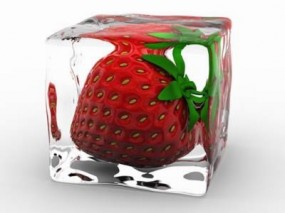- Fitness (19)
- News & Reviews (25)
- Nutrition (20)
- Science (10)
- Supplements (6)
- Technologies (8)
- The Arts (9)
Building Smarter Beings
July 17th, 2011
 By Riddhi Shah of the HuffingtonPost: Over the last decade, interest in the science of meditation has skyrocketed. We now know more than ever before about just how meditation affects our minds and bodies. Increased research has led to a plethora of fascinating discoveries: Take, for instance, the fact that meditation can prevent heart disease. Or that it reduces stress. Or that it can significantly lessen ADHD symptoms, and in many cases, beats medication.
By Riddhi Shah of the HuffingtonPost: Over the last decade, interest in the science of meditation has skyrocketed. We now know more than ever before about just how meditation affects our minds and bodies. Increased research has led to a plethora of fascinating discoveries: Take, for instance, the fact that meditation can prevent heart disease. Or that it reduces stress. Or that it can significantly lessen ADHD symptoms, and in many cases, beats medication.
Still, much is left to be discovered. We know more but we definitely don’t know everything. While we wait for science to catch up with ancient wisdom, check out this slideshow on the complex effects of the simple act of focused breathing [here are its salient points]:
- [S]ustained meditation leads to something called neuroplasticity, which is defined as the brain’s ability to change, structurally and functionally, on the basis of environmental input. For much of the last century, scientists believed that the brain essentially stopped changing after adulthood. But research by University of Wisconsin neuroscientist Richard Davidson has shown that experienced meditators exhibit high levels of gamma ray activity and display an ability — continuing after the meditation session has attended — to not get stuck on a particular stimulus. That is, they’re automatically able to control their thoughts and reactiveness.
Apples & Onions & Pesticides
June 14th, 2011
 By Scott Hensley for NPR: Maybe you overlooked the U.S. Department of Agriculture’s yearly roundup of pesticides in foods released last month. It’s long and full of tongue-twisting chemicals — like tetrahdrophthalimide and pyraclostrobin — found on some popular produce.
By Scott Hensley for NPR: Maybe you overlooked the U.S. Department of Agriculture’s yearly roundup of pesticides in foods released last month. It’s long and full of tongue-twisting chemicals — like tetrahdrophthalimide and pyraclostrobin — found on some popular produce.
But the Environmental Working Group, an advocate for stricter pesticide controls, has crunched the numbers from that report and a bunch of others to come up with a guide for concerned shoppers.
There’s a “Dirty Dozen,” headlined by apples, celery and strawberries. And there’s also a catchy “Clean 15” of fruits and vegetables lowest in pesticides. The top three on that list: onions, sweet corn and pineapples.
The EWG suggests that people buy organically grown fruits and vegetables for the varieties on its list of the most likely to carry pesticide residues. But the group also says the health benefits from produce mean that “eating conventionally-grown produce is far better than not eating fruits and vegetables at all.” Continue reading »
ADD Kids Helped by Food Sensitivity Diet
March 14th, 2011
 From NPR — All Things Considered: Hyperactivity. Fidgeting. Inattention. Impulsivity. If your child has one or more of these qualities on a regular basis, you may be told that he or she has attention deficit hyperactivity disorder. If so, they’d be among about 10 percent of children in the United States.
From NPR — All Things Considered: Hyperactivity. Fidgeting. Inattention. Impulsivity. If your child has one or more of these qualities on a regular basis, you may be told that he or she has attention deficit hyperactivity disorder. If so, they’d be among about 10 percent of children in the United States.
Kids with ADHD and ADD can be restless and difficult to handle. Many of them are treated with drugs, but a new study says food may be the key. Published in The Lancet journal, the study suggests that with a restrictive diet, kids with ADHD could experience a significant reduction in symptoms.
The study’s lead author, Dr. Lidy Pelsser of the ADHD Research Centre in the Netherlands, writes in The Lancet that the disorder is triggered in many cases by external factors — and those can be treated through changes to one’s environment.
“ADHD, it’s just a couple of symptoms — it’s not a disease,” the Dutch researcher tells All Things Considered weekend host Guy Raz. The way we think about — and treat — these behaviors is wrong, Pelsser says. “There is a paradigm shift needed. If a child is diagnosed ADHD, we should say, ‘OK, we have got those symptoms, now let’s start looking for a cause.’ ”
Pelsser compares ADHD to eczema. “The skin is affected, but a lot of people get eczema because of a latex allergy or because they are eating a pineapple or strawberries.” According to Pelsser, 64 percent of children diagnosed with ADHD are actually experiencing a hypersensitivity to food.
Filed under Nutrition | Comments Off on ADD Kids Helped by Food Sensitivity DietEssential Air Purifiers
December 21st, 2010
Why would you need an air purifier? To control dust, pollen and pet hair, to help rid your space of chemicals and toxins, germs, mold spores, to help with asthma or allergies, or to remove odors.
This reliable site offers great education on air purifiers, and gives you tools to find the best ones to solve your particular problem. They sell many different brands and models and offer a guarantee.
Filed under Technologies | Comments Off on Essential Air Purifiers




